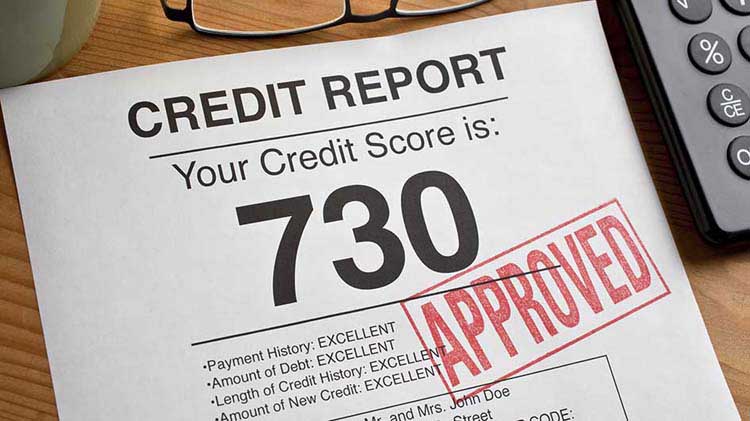Credit score facts and myths
Do you know what actions really help your credit score and which ones can harm it?
Your credit score is complex, but understanding more about how it works empowers you to improve your credit report. Take note of these common credit myths so that you can raise your credit score.
What are some popular credit score myths?
Myth 1: It's impossible to improve credit score
Truth: You can rebuild credit over time with patience and good debt management. As you consistently make prompt payments, lenders will notice the negative marks on your credit history less. Learn more from State Farm® about improving your credit score.
Myth 2: Checking your credit can hurt your credit score
Truth: Pulling your own credit report, also known as a soft inquiry, doesn't affect your credit score. In fact, regularly checking your credit report is a responsible financial practice. You're entitled by law to one free report from each of the three reporting bureaus every 12 months.
Keep in mind if a lender pulls your score to approve a new line of credit, it is a hard inquiry and can lower your credit score. You typically have to authorize this process.
Myth 3: Closing old accounts can boost your credit score
Truth: Closing an account lowers your available credit, which can raise your debt-to-credit ratio and therefore lower your score, especially if you carry balances on other cards.
Myth 4: Closing old accounts can shorten your credit history
Truth: Accounts with no negative marks that are paid in full will remain on your report for 10 years after being closed.
Myth 5: Co-signing for a loan or credit card won't affect your credit score
Truth: You are just as responsible if the borrower misses a payment or exceeds his or her limit and your credit score will be penalized. One way to be wise about co-signing a loan is to learn more about what it means beforehand.
Myth 6: Paying cash is the best thing you can do for your credit score
Truth: A good credit score means a solid credit history, which can't be built or maintained by paying for everything with cash.
Myth 7: It's bad to open another credit card
Truth: If you don't have outstanding debt on your current credit card, then it's probably fine to open another one — just keep the balance paid off.
Myth 8: Credit cards with higher limits are bad for your credit score
Truth: Not at all. Credit score is affected negatively by how much of your credit limit you use. If the credit utilization score is smaller, this is better for your credit score. For example, you'll have a bigger negative ding if you owe $100 on a card with $1000 credit limit (10% utilization), than owing the same amount of money on a credit card that has a $10,000 limit (1% utilization).
Myth 9: When I max out my credit card limit and pay it off every month, my credit score is not affected
Truth: Actually, the opposite. This action will harm your credit utilization, which can affect credit score. As a recommendation, try to use 30% or less of your overall credit limit every month.
Myth 10: Applying for a new credit card hurts my credit score
Truth: It depends.This action is called a hard inquiry. When you do a single application, your credit score may only be affected by a few points and for a short period of time.
Myth 11: Interest rates are the same for all customers on the same credit card
Truth: There is not a set interest rate. If you have a better credit score, you might be able to get a better interest rate on a credit card.
Myth 12: After getting a credit card, the interest rate will not change
Truth: Make sure you check the fine print on your credit card application and statements. Fixed rates won't change, but the credit card companies can change variable rates without notice. You may call the credit card company and try to negotiate variable rates as well as the annual fee charged.
Credit card types
If you struggle with how to use a credit card, you're not alone. But before you do anything, you have to know where your debt is coming from in order to create a pay-off plan. After that, you need to understand where your money goes — and learn the ins-and-outs of credit card basics.
- Basic credit cards are ideal if you want a low, fixed rate and no annual fee. These credit cards often advertise introductory rates, which means that you'll have a lower annual percentage rate (APR) for a specified period of time, either on balance transfers or purchases or both. This is best if you wish to carry a balance each month, or if you have an existing balance to transfer from a higher APR card. But know that the rate will eventually rise, when the introductory period is up, to a rate the credit card company must disclose up-front.
- Rewards credit cards work if you charge a lot of purchases and pay off your balance each month. Each purchase you make may add up for benefits like airline miles, hotel stays or cash back. Be sure to find one with the right rewards for you as a lot of them will have an annual fee. After all, you want to make sure you're going to use whatever you earn. Hard-earned rewards should never be wasted.
- Secured credit cards are a match for those who have serious financial troubles that have compromised the ability to obtain credit. Secured credit cards work like unsecured credit cards but require a deposit in the issuing bank. The credit limit is generally set at the same amount as the deposit. Choose a secured credit card carefully. Look for a secured credit card with no application fee and a low annual fee. Most importantly, make sure it reports to all three credit bureaus: Equifax®, Experian® and TransUnion®. You may use a secured credit card to rebuild credit, or start a credit history, but only if your credit is being updated with your new, good credit habits.
- Student credit cards are specifically targeted at post-secondary students, who have little or no credit history. While these credit cards often have high APRs, the right one, used wisely, can be a valuable tool in building credit. One thing to keep in mind: federal law now restricts credit card companies from issuing a credit card to anyone under 21 who cannot show proof of income and the ability to pay back the debt incurred, or who doesn't have an adult co-signer.
Credit card fees
Regardless of the type of credit card, the fine print is important for disclosures and fees. While many credit cards have fees, you can find no-fee options or you can avoid fees through smart usage. The most common fees are:
- Annual fee, charged each year for the use of the credit card, and is charged separately from purchases. It's most common with rewards and affinity credit cards.
- Late payment fee, charged if you make your monthly payment after the due date. The amount is disclosed by the credit card issuer. In addition to the fee, if you make your payment after the due date, your APR may rise.
- Balance transfer fee, incurred if you transfer another balance. It may be a set amount, or a percentage of the transferred balance.
- Cash advance fee is charged if you use a credit card to withdraw cash at an ATM, or over the counter at a bank. The fee is in addition to the APR charged for cash advances, and doesn't include charges assessed by the bank that owns the ATM.
- Application fee may be charged by some credit card companies just for applying for a credit card. It's important to note that not all companies charge an application fee.
Let's debunk the myths — starting today.





